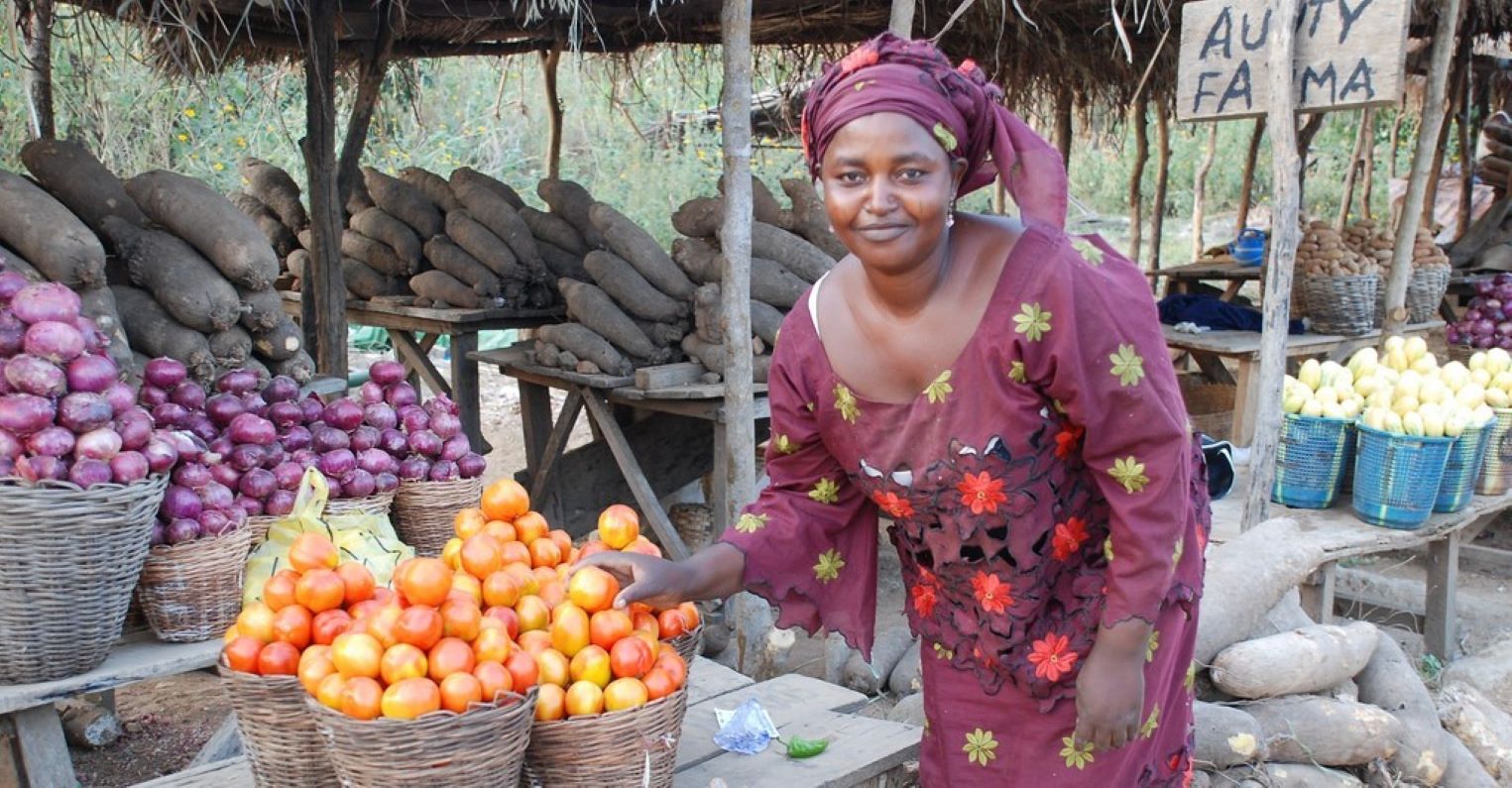Impact of Digital Credit on Low-Income Women in Nigeria

A woman selling produce at a market stand | Photo Credit: Comprehensive Africa Agriculture Development Programme (CAADP)
Context
Nigeria has the largest economy and the largest population of any country in Africa, but its market for digital financial products is still relatively young, and its financially included population is relatively small. Consumer lending volumes in Nigeria were estimated at N1.42 T (approximately USD$3.2B) in 2020, only a quarter of Nigeria’s 106 million adults have ever accessed credit and just 2.7 million people, or 2.6% of the adult population, have access to formal credit. This market’s untapped potential has led to the proliferation of digital credit products in recent years, with hundreds of fintechs operating in the country. As in other regions that have seen rapid growth in the availability and use of digital financial products, this raises important questions regarding welfare impacts, consumer protection, equity, and women’s economic empowerment.
Study Design
This study will focus on the MoneyPal product offered by Zedvance Finance Limited, a consumer digital lending company operating in Nigeria since 2014, and will address two key research questions:
(1) To what extent do digital credit product design features and functionalities reach and benefit low-income women?
(2) To what extent does digital credit impact women’s welfare and livelihood?
MoneyPal is a nano loan product targeted at low-income earners and micro, small and medium enterprises. New customers can begin with a loan of N2,500 (~USD $6), with successful repayment enabling larger loans up to a maximum loan size of N100,000 (~USD $240). The average interest rate is 15%, though they vary by loan size, term, and the applicant’s credit score.
Following an awareness campaign by the partner, Zedvance, the researchers will recruit participants who express interest and sample 90 women who are small traders at a major market in Lagos, Nigeria. These women will be randomly assigned to one of three arms:
T1: A credit officer will provide training on the product and its benefits during onboarding
T2: The same as T1 plus financial literacy training (using credit to drive business growth and build financial resilience)
Control: A credit officer will assist with onboarding, but will not provide any additional training
Focus Group Discussions (FGDs) and surveys will enable researchers to learn how each treatment arm affects women’s access to credit, household savings, borrowing, investment behavior, household bargaining, and labor force participation of low-income women traders. The multiple treatment arms will allow researchers to analyze whether and how awareness of the terms of use for MoneyPal impact adoption, and further whether financial literacy training enables women to more confidently, quickly, and productively utilize digital credit to grow their business and build financial resilience.
Results and Policy Lessons
Results from this project are forthcoming.

